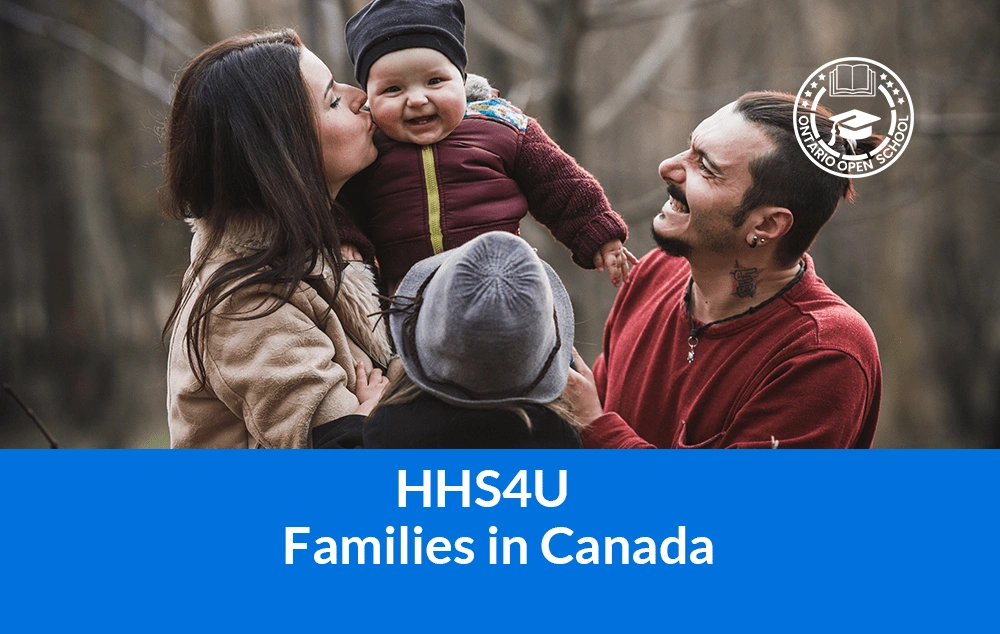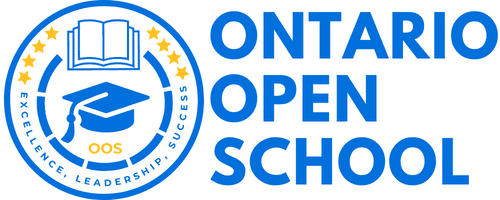- info@ontarioopenschool.com
- 647-494-4499
-
Unit 100 - 29 Gervais Drive, North York, ON.
M3C 1Y9
Copyright 2024 Ontario Open School Inc. All Rights Reserved.
This course enables students to draw on sociological, psychological, and anthropological theories and research to analyze the development of individuals, intimate relationships, and family and parent-child relationships. Students will focus on issues and challenges facing individuals and families in Canada’s diverse society. They will develop analytical tools that enable them to assess various factors affecting families and to consider policies and practices intended to support families in Canada. They will develop the investigative skills required to conduct and communicate the results of research on individuals, intimate relationships, and parent-child relationships.
Unit Order | Unit Name | Suggested Time |
|---|---|---|
| Unit 0 | Research and Inquiry Skills | Integrated throughout the course |
| Unit 1 | An Approach to the Study of Individuals and Families: Students explore family definitions, structures, and roles within various historical and cultural origins. Theoretical frameworks for studying the family are examined from the disciplines of sociology, psychology, and anthropology. Students are introduced to social science research methods to investigate issues that affect individuals and families in a diverse society. Note: The independent study begins in this unit. Each student determines a topic and formulates a research question. | 15 hours |
| Unit 2 | Individuals in a Diverse Society: An understanding of individual development is gained through the exploration of a variety of related theories. Historical and ethno cultural understandings of the origins of contemporary individual lifestyles, socialization patterns, and family roles are developed. Students analyze current issues and trends relating to young adults. They use social science research skills to enhance their learning. | 20 hours |
| Unit 3 | Intimate Relationships and Marriage in a Diverse Society: Students analyze and evaluate theories about mate selection. The legal aspects of marriage are presented and examined. An overview of the historical, religious, and cultural perspectives of marriage is given. The students learn the skills, attitudes, and behaviors necessary to build satisfying and lasting relationships. Current issues, such as divorce, power/abuse, and alternatives to marriage are explored. | 25 hours |
| Unit 4 | Parent Child Relationships on a Diverse Society: Students examine and explore the development of the parent-child relationship. Students use knowledge of family theories gained in Unit 1 to analyze information from both a psychological and sociological perspective. Issues, such as the role of parents and children in the family, socialization patterns, and parenting practices are examined within the contexts of various cultural perspectives and historical periods. Current issues such as divorce, reproductive technology, teen parenting, and child abuse are investigated to speculate on the significance of these trends for individual and family development. Upon completion of their independent study unit, students demonstrate effective use of current technology in the communication of their independent study. | 22 hours |
| Unit 5 | Individuals and Families from Mid to Late Adulthood: Students analyze theories and research related to individuals and families ranging from mid-to-late adulthood. Students take into consideration diversity in personal and family roles as well as the roles of social institutions. Many important life issues that occur from mid-life through to death are examined. Students come to understand that at this stage in life we revisit some earlier issues from a different perspective. | 20 hours |
| Final Evaluation 30% | Final Assignment Final Exam
| 8 hours |
| Total | 110 Hours |
A wide variety of instructional strategies are used to provide learning opportunities to accommodate a variety of learning styles, interests and ability levels. These strategies include, but are not limited to:
Purpose
The primary purpose of assessment is to improve student learning. Assessment relates directly to the expectations for the course.
A variety of assessments for and as learning are conducted on a regular basis to allow ample opportunities for students to improve and ultimately demonstrate their full range of learning and for the teacher to gather information to provide feedback. Assessment tasks relate to the success criteria set out in lesson plans. Success criteria allow students to see what quality looks like.
Evaluation is the process of judging the quality of student work in relation to the achievement chart categories and criteria and assigning a percentage grade to represent that quality. Evaluation is based on gathering evidence of student achievement through:
Assessment for Learning – we provide feedback and coaching. Assessment FOR Learning is the process of seeking and interpreting evidence for the use of learners and their teachers to decide where the learners are in their learning, where they need to go, and how best to go there.
Assessment as Learning – we help students monitor progress, set goals, reflect on their learning
Assessment AS Learning is the process of the explicit fostering of students’ capacity over time to be their own best assessors, but teachers need to start by presenting and modeling external, structured opportunities for students to assess themselves.
Assessment of Learning – we use assessments to provide evaluative statements about student achievement. Assessment OF Learning is the assessment that becomes public and results in statements of symbols
(marks/grades/levels of achievement) about how well students are learning. It often contributes to pivotal decisions that will affect students’ future.
ASSESSMENT TOOLS
| Assessment and evaluation in this course will be continuous throughout the semester and will include a variety of methods. | ||
| Assessment As Learning | Assessment for Learning | Assessment of Learning |
|
Student Product: Learning Logs KWL Chart Goal Settings
|
Student Product:
Assigned Questions / Worksheet / Homework Reflective Journal Diagnostic Quiz |
Student Product: Unit Culminating Activities Unit Tests Independent Study Project Final Exam |
|
Observation: Performance Tasks |
Observation:
Individual and/or Group Presentations and Seminars |
Observation: Individual/Group presentations and Seminars
|
|
Conversation: Reflective Discussion
|
Conversation:
Discussions
|
Conversation: Student Teacher Conferences Seminars |
Resources
Grading
Weighting of categories
| Knowledge/Understanding | Thinking/Inquiry | Communication | Application |
| 25% | 25% | 25% | 25% |

Course Grade | Grade 12 |
|---|---|
Course Code | HHS4U |
Course Category | Social Sciences and Humanities |
Course Type | University Preparation |
Course Delivery | Online |
Course Duration | 8hrs |
Course Credit | 0 |
Copyright 2024 Ontario Open School Inc. All Rights Reserved.
